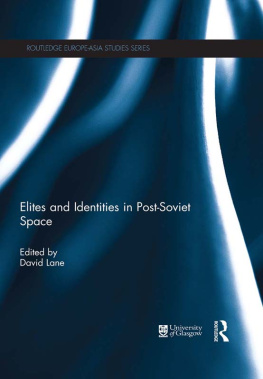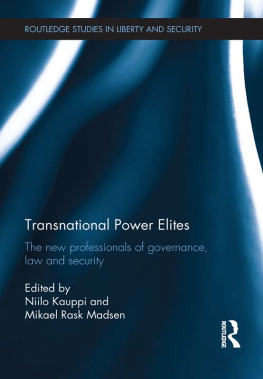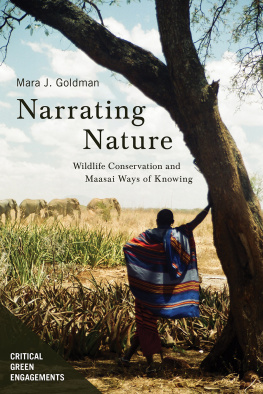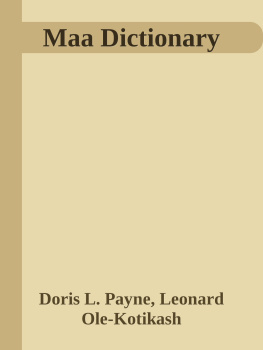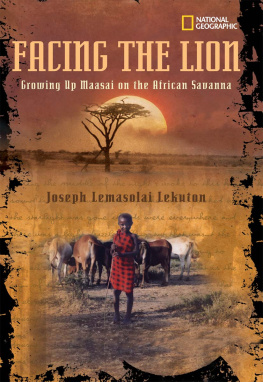Indigenous Elites in Africa
This book investigates the formation, configuration, and consolidation of elites among Kenyas Maasai.
The Maasai ethnic group is one of the worlds most anthropologized populations, but research tends to focus on what appears to be their dismal situation, analyzing how their culture hinders or challenges modern ideas of economic and political development. This book instead focuses on the Maasai men and women who rise to the position of elites, overcoming the odds to take on positions as politicians, professors, CEOs, and high-end administrators. The twenty-first century has seen new opportunities for progression beyond the social reproduction of family wealth, with NGOs, missionaries, tourists, and researchers providing new sources of global capital flows. The author, who is Maasai herself, demonstrates the diverse local, national, and global resources and opportunities which lead to social mobility and elite formation. The book also shows how female elites have been able to navigate a patriarchal society in their journey to attaining and maintaining elite status.
This book will be of interest to researchers across the fields of anthropology, political science, international development, sociology, and African studies.
Serah Shani is an Associate Professor, School of Social and Behavioral Sciences, Mercy College, USA. She is also the author of italic Immigrant Families in the United States: Transnational Lives and Schooling .
Routledge Contemporary Africa Series
Advancing Sexual and Reproductive Health and Rights in Africa
Constraints and Opportunities
Edited by Ebenezer Durojaye, Gladys Mirugi-Mukundi and Charles Ngwena
Decolonizing Political Communication in Africa
Reframing Ontologies
Edited by Beschara Karam and Bruce Mutsvairo
Africa in a Multilateral World
Afropolitan Dilemmas
Edited by Albert Kasanda and Marek Hrubec
Developing Creative Economies in Africa
Spaces and Working Practices
Edited by Brian J. Hracs, Roberta Comunian and Lauren England
Implementing the Sustainable Development Goals in Nigeria
Barriers, Prospects and Strategies
Edited by Eghosa O. Ekhator, Servel Miller and Etinosa Igbinosa
Cultures of Change in Contemporary Zimbabwe
Socio-Political Transition from Mugabe to Mnangagwa
Edited by Oliver Nyambi, Tendai Mangena and Gibson Ncube
Indigenous Elites in Africa
The Case of Kenya's Maasai
Serah Shani
Media and Communication in Nigeria
Conceptual Connections, Crossroads and Constraints
Edited by Bruce Mutsvairo and Nnamdi T Ekeanyanwu
For more information about this series, please visit: https://www.routledge.com/Routledge-Contemporary-Africa/book-series/RCAFR
Indigenous Elites in Africa
The Case of Kenyas Maasai
Serah Shani
First published 2022
by Routledge
2 Park Square, Milton Park, Abingdon, Oxon OX14 4RN
and by Routledge
605 Third Avenue, New York, NY 10158
Routledge is an imprint of the Taylor & Francis Group, an informa business
2022 Serah Shani
The right of Serah Shani to be identified as author of this work has been asserted by her in accordance with sections 77 and 78 of the Copyright, Designs and Patents Act 1988.
All rights reserved. No part of this book may be reprinted or reproduced or utilised in any form or by any electronic, mechanical, or other means, now known or hereafter invented, including photocopying and recording, or in any information storage or retrieval system, without permission in writing from the publishers.
Trademark notice: Product or corporate names may be trademarks or registered trademarks, and are used only for identification and explanation without intent to infringe.
British Library Cataloguing-in-Publication Data
A catalogue record for this book is available from the British Library
Library of Congress Cataloging-in-Publication Data
A catalog record has been requested for this book
ISBN: 978-1-032-02576-6 (hbk)
ISBN: 978-1-032-02578-0 (pbk)
ISBN: 978-1-003-18399-0 (ebk)
DOI: 10.4324/9781003183990
Typeset in Bembo
by Deanta Global Publishing Services, Chennai, India
This book is dedicated to my parents, Reverend Daniel Shani and Mrs. Grace Shani.
Contents
Map of Kenya showing Maasai land before and after colonization (Censotti 2019) |
Map of Kenyan provinces |
Map of Kenya showing counties (Kwach 2019) |
Maasai land (Nankaya, Gichuki, Lukhoba, Balslev 2020) |
I would like first to thank all the elites of Narok Town. Thank you for allowing me into your offices, homes, and gatherings and for having lunch, tea, or coffee with me at coffee houses. I know how hard it is, given your busy schedules, to carve out time for an interview. The discourses we had in these settings were very enriching and informative. Thank you for sharing your journeys to elite positions with enthusiasm and for answering all my questions and follow-up questions with no hesitation. This book came into being because of you all. To maintain confidentiality, I have not used your actual names in any way in this book; instead, I have used pseudonyms. But please know that I am greatly indebted to you, and my heart is filled with gratitude for your support. I hope when you read this book, you will connect to the arguments made and feel appropriately represented. I also thank all the other people I had conversations and discussions with about this project, especially Maasai friends and colleagues in Narok Town, who contributed immensely to its richness.
I am grateful to Westmont College for its support through the Faculty Development Fund and to the John Templeton Foundation, both of which have made this project a success. Westmont faculty, staff, and students have been helpful in creating an atmosphere conducive to scholarship. I have discussed this project with students in classrooms and gained insights regarding the perceptions and questions raised about arguments in the book. I would like to specifically thank, in a very special way, two Westmont students, Kathleen A. Ryan and Samantha C. Rosenhagen, for working as my research assistants during the writing phase of this project. Thank you very much for working so hard, effectively, and in a timely manner during the semester and summer breaks. I believe this was a great learning opportunity for you as it was for me. My gratitude also goes to my excellent editor, Jennifer Delliskave, who read and edited the final draft of the manuscript. Thank you very much, Jennifer, for your excellent work.
The following people were gatekeepers who enabled me to meet with and interview contacts, friends, and many elites: Honorable Moses Sakunda, Honorable Mary Semat, Honorable Rahab Kenana, Honorable Violet Sikawa, Honorable David Ole Sankok, Dr. Paul Kanyinke Sena, Dr. Nchorira Naikuni, Bishop Simon Simpai, Bishop Reverend Davis Kisotu, Hellena Moses, Rose Kudate, Maison Kuseyo Sasai, and Alice Munke. Without you, this research would not have taken off, as you were the main access points to political, professional, religious, and economic elites. Thank you very much for trusting me to navigate your networks and to probe into their lives. Thank you also for letting me use your names as references to gain entry into elite spaces and networks.


